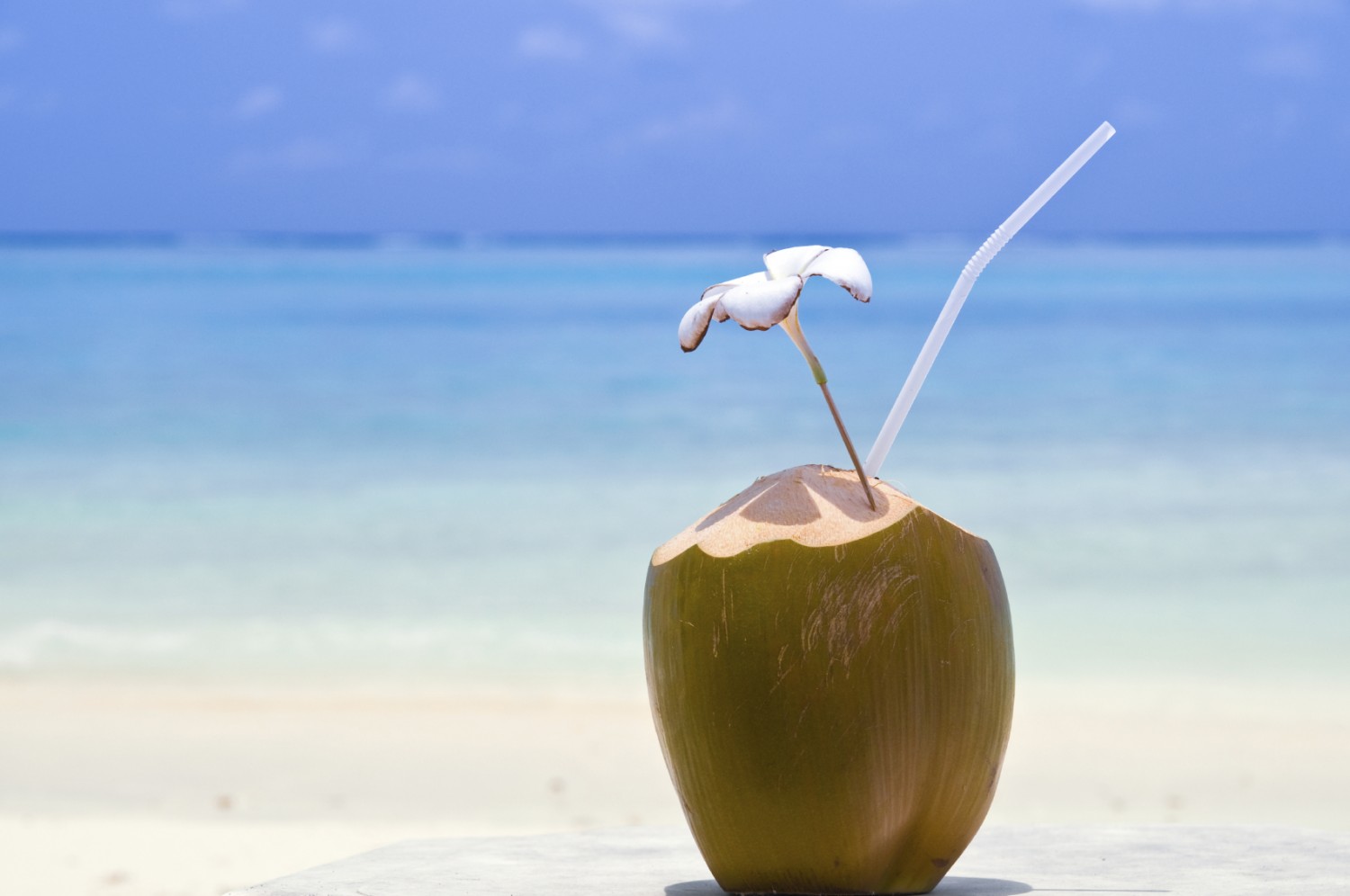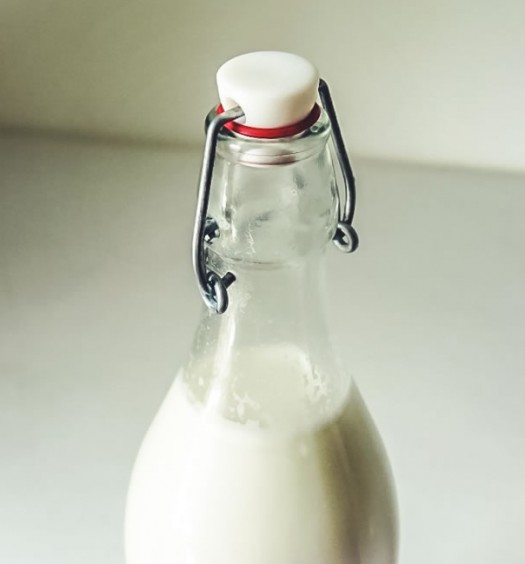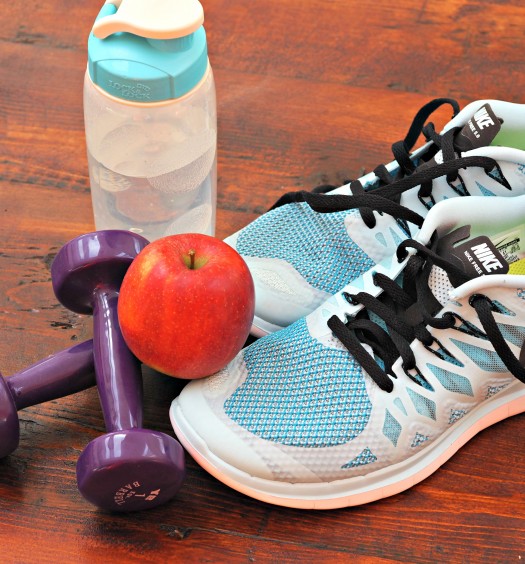Coconut water has become the UK’s fastest-growing soft drink. Sales are up 114 percent since last year with over 36 brands available in Britain. They don’t come cheap so we want to ensure we’re getting what we pay for. The problem lies in working out which are the better brands when they all have words like ‘natural’, ‘unprocessed’, ‘pure’ and the like on their cartons.
I do love coconut water and it does come with a multitude of benefits (if chosen wisely) but I don’t like manufactures distorting our judgement through their flippant use of unregulated words which dupes us into buying substandard products. I want to know what I’m getting.
Where it goes wrong
The whole point to coconut water is that it is a natural drink with its abundance of nutrients intact. Here are the four main issues I have with many brands:
- Using a concentrate – difficult to spot as they can still say ‘100% coconut water’ or ‘natural’ all over the label. Coconut water is heated and reduced to syrup which is easier and cheaper to export and water is added prior to packaging. The problem is that vital nutrients, electrolytes and enzymes are destroyed, effectively you’re drinking expensive flavoured water.
- Using mature coconuts – the water of young green coconuts is full of nutrients and flavour. As they age many of the nutrients are absorbed into the flesh of the coconut. These coconuts are used for making coconut oil and milk and the water was traditionally discarded. That was until companies realised there were large profits to be made from using mature coconut water and adding artificial flavourings and hidden sugars to disguise the taste.
- Adding anything – ‘natural flavours’ sounds ok right? But there is little regulation on what actually constitutes natural and some of these additives can be beaver’s anus or crushed beetles – no thanks. True green coconut water is naturally sweet with a distinct flavour so there is no need to add anything. Yet we frequently see coconut water with added sugar, fructose, or fruit sugars. It’s a safe assumption to consider flavoured waters as being from mature coconuts.
- Pasteurising with heat – the nutrients in coconut water are very delicate and it is a perishable product. Heat treatment can extend the shelf-life by years. But, the very high temperatures used kills nutrients, taking away the benefits. There is a new (and more expensive) way to get around this called HPP (high pressure processing) which doesn’t use heat so keeps the nutrients stable but also extends shelf life.
It’s impossible for me to go through each brand here but I thought I’d say a little about the most popular ones. Unfortunately the most common brands are also those making the most common mistakes.
Take Naked (owned by Pepsi) they use mature coconut water which is pasteurized with heat so not only is it less nutritious to start with, they kill off what’s left in processing. Some varieties also have added ‘natural’ flavours. O.N.E is also owned by Pepsi and heat treated. Especially avoid the flavoured ones which also have added sugar.
Zico (owned by Coca-Cola) sell waters which are “a blend of Asian coconuts” with natural flavours added and use high temperature pasteurization. It’s also made from concentrate and there’s no need to refrigerate (more alarm bells). No surprise that Coca-Cola found ways to totally distort a healthy natural product into just another soft drink.
I think the one that disappoints me the most is Vita Coco. I was thrilled when this product came on the market and regularly stocked it. I even got excited by the kids’ version until l looked more closely at their methods. All their products are pasteurised with heat and contain added fruit sugar – the ones aimed at kids are loaded with added sugar and many different ‘natural’ flavours. A 16oz bottle of ‘all natural’ coconut water contains 22grams of sugar so it’s not quite the health drink it makes itself out to be.
Which to choose
To be honest, a healthy diet and plenty of water can provide all you your daily needs. Coconut water is not an essential part to health as the manufacturers would have us believe. It is after all 95% water and the nutrients within are nothing unique and can be found in simple foods such as bananas and celery.
Even so, if chosen wisely coconut water is better than a sports drink (don’t get me started on the colours, additives, questionable nutrients and flavours in those) and great for hydration in hot weather or when sick – kids don’t really eat when they’re unwell so coconut water can replace vital electrolytes.
The most important thing to look for is the least processed coconut water which still has its nutrients intact.
 Cocoface coconuts are young whole coconuts imported from Thailand. You simply pierce, drink the water and eat the flesh. They sell for £2.99 (350 ml) each in Ocado, Wholefoods and Planet Organic. You can also find good ‘bulk’ offers on their website. I’ve worked out the water from these totally fresh coconuts is actually cheaper in many cases than their processed counterparts so they are a cost effective choice – and fun to drink.
Cocoface coconuts are young whole coconuts imported from Thailand. You simply pierce, drink the water and eat the flesh. They sell for £2.99 (350 ml) each in Ocado, Wholefoods and Planet Organic. You can also find good ‘bulk’ offers on their website. I’ve worked out the water from these totally fresh coconuts is actually cheaper in many cases than their processed counterparts so they are a cost effective choice – and fun to drink.
My favourite bottled brand is Unoco. Because it’s raw, it contains no additives and only comes from young, wild green coconuts with their higher levels of natural phenols (antioxidants). It’s not heat-treated, they use HPP and it’s additive free with no added disguised sugar. At the moment it’s available online or from Waitrose/Ocado, Wholefoods and Planet organic. This British brand is making headlines as it was the first to be completely raw and so the closest to actually drinking from a coconut. It must be kept in the fridge – another indication of freshness.
Tiana organic coconut water is also good quality and is canned within 3 hours after opening the coconut which helps keep the nutrients stable. It’s also unpasteurised which is a winner but I am not a fan of the cans as they can leech chemical nasties into the drink. Basically its good coconut water in bad packaging.
I hope you find this guide useful and that you look out for any misguided health claims on your favourite brands. Fresh coconut water is a good alternative to soft drinks but at such elevated costs, it is important to know what your drinking and arm yourself with the information to make sure you’re getting your money’s worth.
We hope you enjoyed this article, let us know your thoughts in the comments below or on our facebook page and don’t forget to sign up to our newsletter to receive more recipes, nutrition tips and expert advice.






